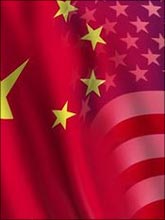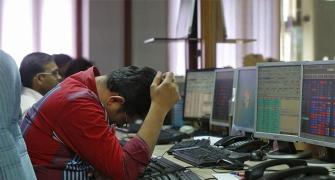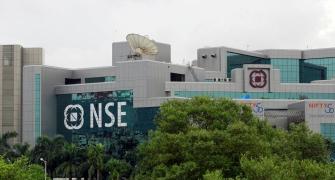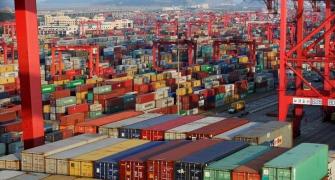 We would not like to make it sound dramatic by calling it an Economic Armageddon (meaning the end of the world). But with two of the most economically powerful nations in the world at loggerheads, it definitely seems as though an Economic World War I is not impossible.
We would not like to make it sound dramatic by calling it an Economic Armageddon (meaning the end of the world). But with two of the most economically powerful nations in the world at loggerheads, it definitely seems as though an Economic World War I is not impossible.
This time as well, the allies are from two camps: The borrowers and the savers. There are two major economies leading these camps. One is the falling empire and the second is in a mighty haste to become the largest economic empire.
Yes, we are referring to the United States of America and China. The conventional wisdom used to be that Americans are spenders while Chinese are savers. But the tables have turned.
The US wants China to save and invest in US Treasury. China is doing neither. The traditional saver is today wary of investing the funds in US treasury. Instead the Chinese youth are lopping up credit cards like never before.
In fact, as per CNN, while US consumers are unwinding their massive credit card debt, card issuance has jumped by 32 per cent in China during the last twelve months.
China wants the US to correct its fiscal position and halt the depreciation of the US dollar against global currencies. It also wants the US to continue buying its exported wares without imposing any anti-dumping duties. The US is doing neither.
Despite it coming straight from the dragon's mouth, the US is resilient about sustaining a near-zero interest rate policy. Financial officials in Japan and China, Asia's two largest economies have warned that the Federal Reserve's loose interest-rate policy risks spurring speculative capital that may inflate asset prices and derail the global economic recovery.
The Chinese are worried that having borrowing costs near zero may strain the US government's finances, which in turn may spur speculation that the dollar will continue to slide.
China's apprehensions are well understood. After all, the country is the biggest foreign holder of US government debt, with almost $800 billion worth of US Treasuries, in part a consequence of its controls on its currency. In fact the Chinese government sold yuan and bought dollars to keep the nation's currency fixed at around 6.8 per dollar since July 2008.
However, the two economically warring nations are leaving few options to rescue the global economy from the vicious recessionary cycle.
As per economists, low interest rates and the dollar's tumble have seriously affected global asset prices, fuelled speculation in stock and property markets, and created new, real and insurmountable risks to the recovery of the global economy, particularly emerging-market economies.
In a recent interview to CNN, Warren Buffett commented, "If the United States keeps flooding the world with its debt, countries will eventually notice that US fiscal policies are out of control and become less and less enthused about lending to it."
Investors in India, however, have less to worry. Despite belonging to the Chinese camp of allies, all that we are hoping for is that the US should firm up interest rates.
Like China, we continue to remain large savers, but unlike it, not very large investors in US Treasuries. We are not expecting the US to buy our wares but consuming most of it domestically. More importantly, we are not pegging our currency against the superficial strength of the US dollar.
Thus while the 6 per cent GDP growth rate may neither take India to becoming the largest nor the fastest growing economy anytime soon, what we can at least be rest assured is that our economic buoyancy is here to stay.








